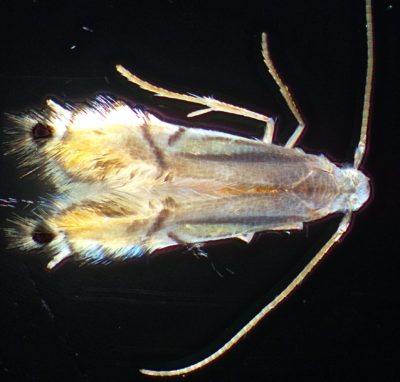
Photo by Denis Willett, Agricultural Research Service
The Christmas freeze event in 2022 affected some insect pests in the cold-hardy citrus region more so than others, according to Xavier Martini. The University of Florida Institute of Food and Agricultural Sciences (UF/IFAS) assistant professor spoke about his findings during the recent Citrus Health Forum held at the North Florida Research and Education Center (NFREC) in Quincy.
Martini addressed how multiple days of sub-freezing temperatures impacted pests that can be detrimental to citrus in the cold-hardy region.
“Red scale declined. Insects like citrus leafminer exploded. They really took advantage of all the new flush that appeared after the defoliation,” Martini said. “We had ambrosia beetle issues that we never had in the last eight years. Asian citrus psyllids were hit pretty badly. The populations really reduced, but they came back. The populations were reduced but they were not wiped out. You still had populations that were built up.”
Martini determined that though the cold temperatures initially impacted pest populations, certain insects responded with a vengeance; especially the leafminer.
“It tells you there’s no single rule. You cannot just say that the cold will get rid of all the insects. Some insects will benefit from the big flush explosion. Some will get hit hard by the cold. You have to look at them individually. There are no general rules,” Martini said. “What was interesting about the leafminer is that initially there were hypotheses that they were overwintering in flush that were surviving during winters. That was proven to be wrong because we didn’t have a single leaf left. With leafminers, the big question is: How do they survive winter?
“What we learned from last year is that if you have a big freeze, be sure to be ready for your leafminer treatment. Your trees will recover, and you will be hammered by the leafminer.”
Leafminer damage in citrus can open wounds for canker disease to develop.

Clint Thompson









